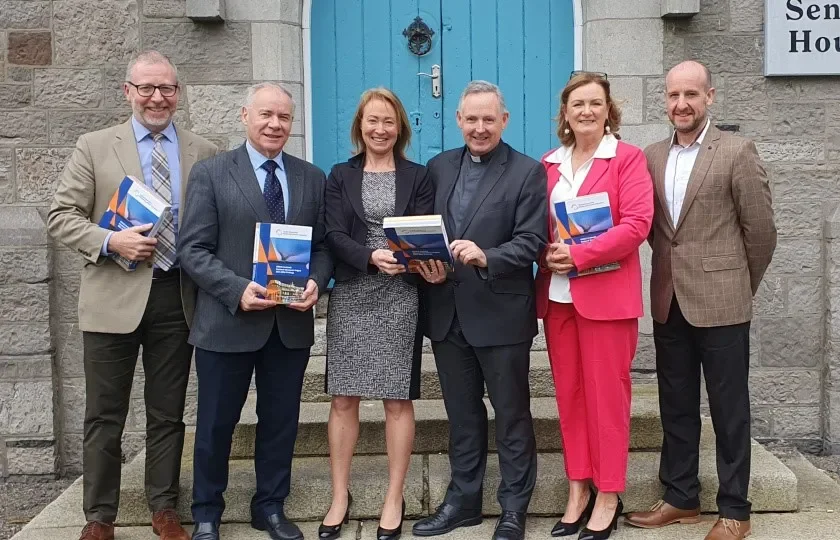

Publication of Major Report Exploring Reality of Identity and Ethos in Irish Catholic Schools
This week saw the publication of a series of reports (six), entitled Identity and Ethos in Catholic Primary and Secondary Schools in Ireland: Exploring the Attitudes and Behaviours of Stakeholders, following the most comprehensive piece of research into the ethos of Catholic primary and secondary schools in Ireland since the foundation of the state.
The body of research, which includes feedback from 4,000 members of Boards of Management, Principals and Teachers in Catholic schools, was undertaken by a team of academic researchers, based at Mary immaculate College (MIC) and the Mater Dei Centre for Catholic Education (Dublin City University), as part of the Global Researchers Advancing Catholic Education (GRACE) project, with the aim of establishing a clear baseline and a set of signposts for the advancing of Catholic education at primary and secondary levels in the Republic of Ireland.
Over the course of three years, the research team explored the identity and ethos in Catholic primary and secondary schools in Ireland, examining the relationship between the stated policy regarding the Catholic identity of these schools and the lived reality within them.
According to Dr Daniel O’Connell, Principal Investigator, Assistant Professor of Religious Education at MIC Limerick, there has been much public discussion about the place and role of Catholic schools in Ireland today but a great deal is anecdotal with very little evidence.
“This research paints an accurate picture of how Catholic identity/ethos informs the practice and culture of these schools and will help move the conversation from over reliance on anecdote to one that is informed by evidence and research. Our hope is that an appreciation for the complexity involved in providing Catholic education will be helpful in promoting real change, both inside and outside schools.” he said.
The report highlights the fact that Ireland’s school communities are becoming increasingly diverse and secular. Age emerges as the dominant determinant of religiosity, and the findings reveal a diminishing pool of Catholics from which to recruit voluntary and professional school leaders.
The report finds that that despite a well-articulated vision for Catholic education in Ireland’s schools, the implementation and oversight of the vision needs significant resourcing. It concludes with a list of recommendations including the need for greater clarity be provided to all stakeholders about the various levels of responsibility for the safeguarding and promotion of the Catholic ethos of schools and the need for investment in significant training for Boards of Managements so that all members are familiar with a comprehensive vision of the nature and purpose of Catholic education and schooling.
For further information and to review all six reports please see www.mic.ie/GRACE.
